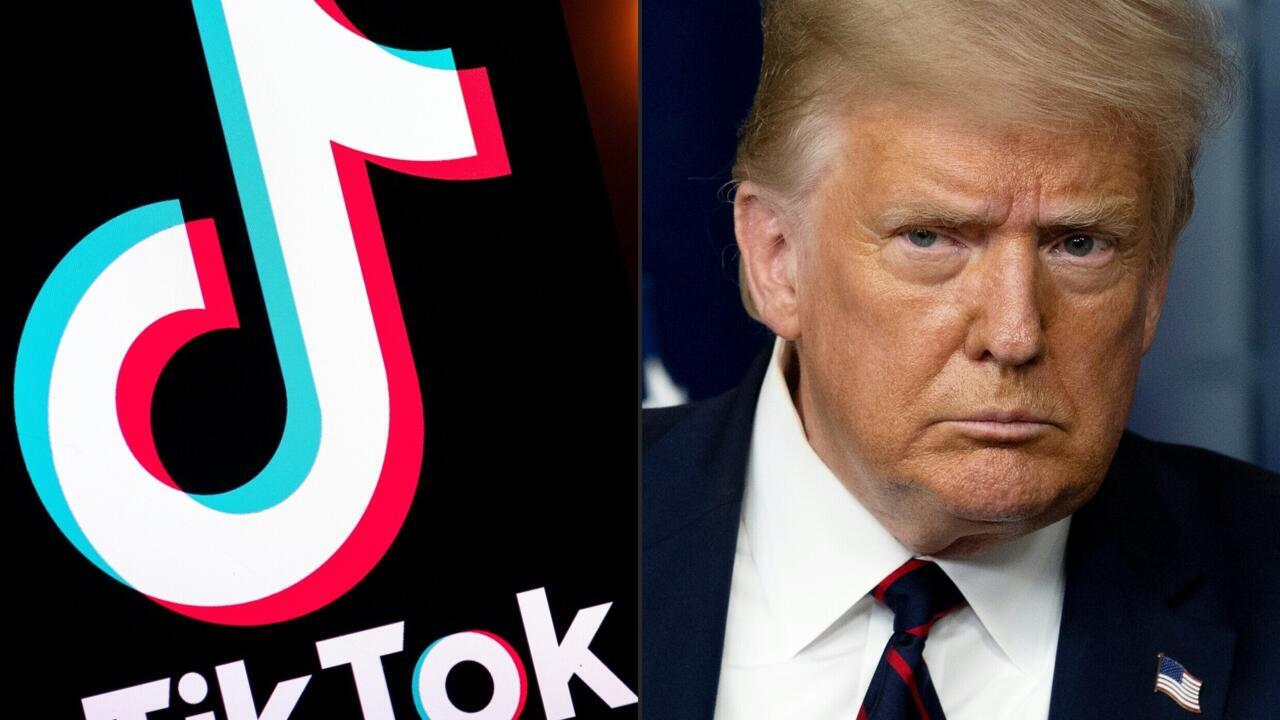TikTok, a highly popular social media platform known for its short videos, has experienced a rise in bans and restrictions globally.. These actions, primarily driven by concerns over data privacy, national security, and potential influence by the Chinese government, have ignited intense debate and raised critical questions about the future of online freedom, the role of governments in regulating technology, and the impact on individuals, businesses, and society as a whole. This article explores the TikTok ban phenomenon, examining its history, reasons, impacts, and arguments for and against it.
Table of Contents
A Global Wave of Restrictions: The History of TikTok Bans
The recent ban in the United States has highlighted an ongoing issue, as TikTok has been facing restrictions in various countries for several years. These bans can be broadly categorized into two types: complete bans, which prohibit all citizens from accessing the app, and partial bans, which restrict TikTok usage on government devices or for specific groups.
Interestingly, most countries that have implemented complete bans are located in Asia, with Albania being the only European country to enact such a comprehensive restriction.
This geographical distribution of bans may indicate the impact of cultural or political factors in the decision-making process.
Complete Bans:
| Country | Year of Ban | Reason for Ban |
|---|---|---|
| Afghanistan | 2022 | Misleading young people and contradicting Islamic values. |
| India | 2020 | Concerns about national security and privacy have arisen following the border clash with China. |
| Iran | N/A | Disruption of social harmony and spreading of malicious content |
| Jordan | 2022 | Incitement of violence and disorder |
| Kyrgyzstan | 2023 | Harmful effects on children’s mental health |
| Nepal | 2023 | Disruption of social harmony and spreading malicious content |
| Somalia | 2023 | Spread of propaganda and indecent content |
Partial Bans (Government Devices/Specific Groups):
| Country/Region | Year of Ban | Target of Ban |
|---|---|---|
| Australia | 2023 | Government devices |
| Austria | 2023 | Government employee devices |
| Belgium | 2023 | Federal government devices |
| Canada | 2023 | Government-issued devices |
| Denmark | 2023 | Defense ministry employees’ work phones |
| European Commission | 2023 | Staff devices |
| France | 2023 | Government employees’ phones |
| Ireland | 2023 | Government devices |
| Latvia | 2023 | Government and state agency devices |
| Lithuania | 2023 | Government institutions |
| Netherlands | 2023 | Government devices |
| New Zealand | 2023 | Parliamentary Service devices |
| Norway | 2023 | Government devices |
| Spain | 2023 | Public sector employees’ devices |
| Sweden | 2023 | Government agency employees’ work phones |
| Taiwan | 2022 | Public sector devices |
| UK | 2023 | Government devices |
| US | 2023 | Government devices |
These bans indicate a rising trend of governments actively regulating technology and addressing concerns regarding data security, foreign influence, and the possible societal effects of social media platforms.
Also Read: How To Unlock Your Facebook Account in 2025
Behind the Bans: Unpacking the Reasons
The reasons for TikTok bans include concerns over data privacy, national security, harmful content, and its effects on mental health.
Data Privacy and Security:
This is the most frequently cited reason for imposing restrictions on TikTok. Governments in several countries, particularly in the West, have expressed concerns that the Chinese government could access user data due to TikTok’s ownership by ByteDance, a Chinese company. This concern stems from:
- Potential Data Access by the Chinese Government: The core concern is that the Chinese government could compel ByteDance to share data on its users, potentially including sensitive information, for purposes such as surveillance or espionage.
- Possible Influence Operations: Governments worry that the Chinese government could manipulate TikTok’s algorithm to control user feeds, suppress dissent, spread disinformation, or influence public opinion to advance its own interests.
- Cybersecurity Risks: Concerns have been raised about potential vulnerabilities in the app that the Chinese government could exploit to compromise user devices or access sensitive information.
Content Concerns:
Beyond data security, some countries have cited concerns about the type of content circulating on TikTok:
- Some countries have raised concerns about the spread of harmful content on TikTok, such as material that promotes violence, self-harm, or misinformation. For instance, Pakistan has temporarily blocked TikTok several times due to inappropriate content; however, the app was re-released after the necessary content adjustments were made. This situation illustrates that content moderation can serve as an alternative to outright bans.
Social and Psychological Impacts:
- Mental Health: Concerns have been raised about the potential negative impact of excessive TikTok use on mental health, particularly among children and adolescents.
- Social Harmony: Some countries have expressed concerns that TikTok could disrupt social harmony or contribute to the spread of divisive content.
These significant concerns have also sparked debate about the balance between national security and individual freedoms, the potential for government overreach, and the need for a more nuanced approach to regulating technology.
The Impact of TikTok Bans: A Multifaceted Analysis
The impact of TikTok bans is far-reaching, affecting individuals, businesses, and society.
Economic Impacts:
- Loss of Income: Content creators who earn a living through TikTok could lose their primary source of income. For instance, a young entrepreneur in Chicago who obtained a visa to the U.S. through TikTok and subsequently launched a beauty business now faces uncertainty about her future if the platform disappears.
- Business Disruption: Businesses that use TikTok for marketing and advertising must find alternative platforms and strategies. The potential ban threatens to disrupt the thriving sub-economy built around TikTok, with millions of businesses relying on the platform to reach their target audience.
- E-commerce Impact: The ban could also affect TikTok’s e-commerce platform, TikTok Shop, which has grown in popularity.
- Impact on Apple Users: The ban has specific consequences for Apple users in the U.S. They can no longer download or update the app, and in-app purchases and new subscriptions are blocked. This restriction could affect the app’s performance, security, and compatibility with future iOS versions.
Social and Cultural Impacts:
- Limited Access to Information: TikTok is a source of information and news for many users, particularly Generation Z, who often utilize it as an informational search engine. A ban could limit their access to diverse perspectives and viewpoints.
- Impact on Creativity and Expression: The ban could stifle creativity and limit opportunities for self-expression for millions of users who rely on the platform to share their talents and connect with others.
- Reduced Social Interaction: TikTok facilitates social interaction and community building, and a ban could disrupt these connections, potentially leading to social isolation and a decline in online community engagement.
Technological Impacts:
- Shift to Alternative Platforms: Users may migrate to other platforms, potentially leading to increased market share for existing giants like Instagram and YouTube. This could further consolidate the social media landscape and reduce competition.
- Security Risks: Ironically, a ban could increase security risks if users resort to unofficial app stores or VPNs to access TikTok, potentially exposing them to malware or data breaches. Furthermore, the Internet Society warns that banning online services can fragment the Internet and create new risks for national security by pushing users towards less secure alternatives.
The long-term impacts of TikTok bans are still unfolding, and further research is needed to fully understand their implications for individuals, businesses, and the digital landscape.
A Divided Landscape: Arguments For and Against TikTok Bans
The TikTok ban debate has polarized opinions, with strong arguments on both sides.
Arguments For the Ban:
- National Security Imperative: Proponents argue that protecting national security is paramount, and the potential risks posed by TikTok’s Chinese ownership cannot be ignored.
- Data Privacy Concerns: The potential for the Chinese government to access user data is a serious concern, and a ban is necessary to safeguard user privacy.
- Combating Misinformation: TikTok can be a source of misinformation and harmful content, and a ban can help mitigate these risks.
Arguments Against the Ban:
- Free Speech Violation: Opponents argue that banning TikTok violates the First Amendment and sets a dangerous precedent for censorship. They contend that the ban infringes on the free speech rights of both users and TikTok itself as a platform for disseminating user-generated content.
- Lack of Concrete Evidence: Critics point out that the government has not provided concrete evidence of actual harm caused by TikTok, and the ban is based on hypothetical risks.
- Ineffective Solution: A ban is seen as ineffective to broader data privacy and security concerns, as users may simply migrate to other platforms with similar data collection practices.
- Economic Damage: The ban will harm businesses and creators who rely on TikTok for income and marketing, potentially causing significant economic disruption.
This debate highlights the complex challenges of balancing national security with individual freedoms in the digital age and the need for a more nuanced approach to regulating technology.
The Current Status: A Shifting Landscape
As of January 19, 2025, TikTok’s legal status in the United States remains in flux. The Supreme Court has upheld the Protecting Americans from Foreign Adversary Controlled Applications Act, which requires ByteDance to divest from TikTok or face a ban.
However, TikTok has voluntarily shut down its operations in the U.S. rather than comply with the law. While President-elect Donald Trump has vowed to issue an executive order to restore TikTok and potentially seek a “political resolution” to the issue, the Supreme Court’s decision may limit his ability to unilaterally overturn the ban.
The situation remains fluid, and TikTok’s future in the U.S. hinges on the actions of the incoming administration, potential negotiations with ByteDance, and ongoing legal challenges.
Expert Opinions: A Spectrum of Perspectives
Experts in various fields have offered a range of perspectives on the TikTok ban and its implications.
Concerns about Data Security and National Security:
- Some experts believe the ban is justified due to TikTok’s Chinese ownership’s potential national security risks. For example, Justice Brett Kavanaugh expressed concerns that the Chinese government could use information gathered on American teenagers to potentially blackmail them or recruit them as spies.
- Concerns have been raised about the potential for the Chinese government to manipulate the app’s algorithm to influence users or access sensitive data.
Skepticism and Concerns about Censorship:
- Other experts argue that the ban is an overreach that infringes on free speech and sets a dangerous precedent for censorship. For instance, William Pelfrey, a professor at Virginia Commonwealth University, argues that the ban targets a popular platform that does not pose an apparent national security threat and questions the justification for prioritizing national security over freedom of speech in this case.
- Some experts question the ban’s effectiveness, arguing that it does not address the broader issue of data privacy and security in the digital age. Chad Mourning, an assistant professor at Ohio University, suggests that the ban might be ineffective as users may find ways to access the app through unofficial channels.
- Ryan Calo, a law professor at the University of Washington, believes that the ban will likely cause TikTok to “go dark” in the U.S. and suggests that the President could choose not to enforce the law to work out a deal with TikTok.
Focus on Systemic Issues:
- Some experts emphasize the need to address the systemic issues of data privacy and the surveillance-based business model of major tech companies rather than focusing on a single app.
These diverse expert opinions reflect the complexity of the TikTok ban debate and the need for a comprehensive and nuanced approach to addressing its challenges.
Public Opinion: A Divided Landscape
Public opinion on the TikTok ban is divided, with varying support and opposition levels.
Declining Support for a Ban:
- Support for a TikTok ban in the U.S. has been declining, with a Pew Research Center poll showing a drop from 50% in March 2023 to 32% in July/August 2024. This decline is observed across political affiliations, with Democrats and Republicans showing less support for a ban.
- This trend contrasts with the Biden campaign’s embrace of TikTok for the 2024 election despite the ongoing debate about its security risks. This highlights the complex relationship between political strategy and public perception of TikTok.
Opposition Among TikTok Users:
- A Pew Research Center poll found that TikTok users are overwhelmingly opposed to a ban, with only 10% expressing support. This opposition is even stronger among daily users, with 73% against a ban.
- Notably, U.S. teenagers are also mainly against a TikTok ban, with 50% opposed and only 18% in support. This generational perspective adds another layer to the public opinion analysis.
Uncertainty About the Likelihood of a Ban:
- Many Americans are uncertain whether a TikTok ban will happen, with 50% believing it is unlikely.
These trends in public opinion suggest a growing awareness of the complexities surrounding the TikTok ban and a potential shift towards a more nuanced approach to addressing the concerns it raises.
Alternative Solutions: Exploring a Range of Options
While a complete ban is one approach to addressing TikTok concerns, alternative solutions have been proposed to mitigate risks while preserving access to the platform.
Data Security and Privacy Measures:
- Increased Transparency: Requiring TikTok to be more transparent about its data collection practices and algorithms could help address data misuse and potential manipulation concerns.
- Data Localization: Mandating TikTok to store user data within the country where it is collected could help prevent foreign governments from accessing sensitive information.
- Independent Audits: Conducting independent audits of TikTok’s data security and privacy practices could ensure that the platform adheres to high standards and protects user data.
Content Moderation and Regulation:
- Strengthening Content Moderation: Implementing stricter content moderation policies to address harmful content and misinformation could help create a safer and more responsible online environment.
- Age-Appropriate Content: It is crucial to develop mechanisms to ensure age-appropriate content and protect children and adolescents from potentially harmful or inappropriate material.
Collaboration and International Cooperation:
- International Agreements: Working with other countries to establish international data security and privacy standards for social media platforms could help create a more consistent and effective regulatory framework.
- Collaboration with Tech Companies: A balanced approach requires engaging in dialogue with TikTok and other tech companies to find solutions that address concerns while preserving online freedom.
These alternative solutions offer a more nuanced approach to addressing the challenges posed by TikTok. They balance national security and individual freedoms while promoting a safer and more responsible digital environment.





















